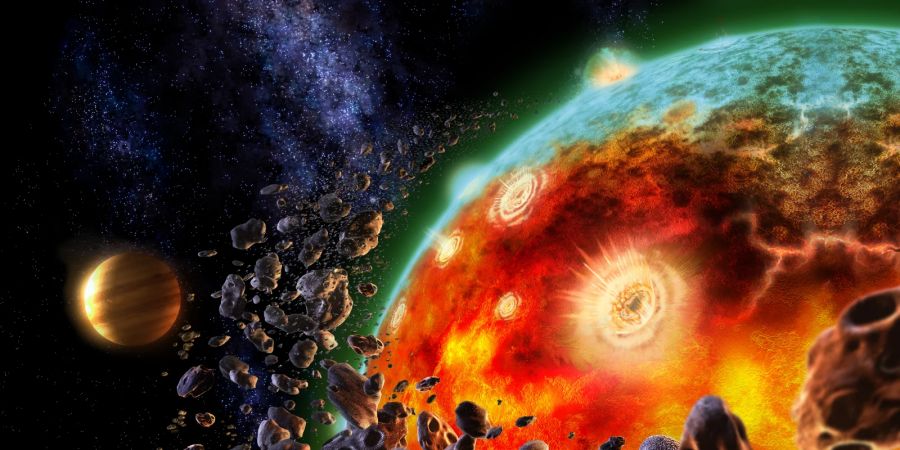

Several recent books and articles would have you believe that science has finally proven God's existence. Their writers say that we know so much about how the universe works that God is no longer necessary: we can explain all of the universe's workings without the necessity for a Creator.
Indeed, science has provided us with a vast amount of knowledge. Every couple of years or fewer, the total amount of human knowledge doubles. We can now claim to know what happened to our universe as early as a fraction of a second after the Big Bang in physics and cosmology, which may sound incredible.We know how the live cell functions and have mapped out our complete genome in chemistry, and we understand the most intricate reactions between atoms and molecules in biology. But does this immense body of knowledge rule out the presence of a pre-existing outside power that may have set our cosmos in motion?
Throughout the nineteenth century, science triumphed over established religious orthodoxy. Discoveries of Neanderthal remains in Belgium, Gibraltar, and Germany in the 1800s demonstrated that humans were not the only hominids to live on the planet, and fossils and remains of now-extinct animals and plants further demonstrated that flora and fauna evolve, live for millennia, and then die off, allowing better-adapted species to take their place.These findings bolstered Charles Darwin's nascent theory of evolution, which he published in 1859. In 1851, Leon Foucault, a self-taught French physicist, used a particular pendulum whose circular motion showed the planet's rotation to prove conclusively that the earth rotates rather than staying in place as the sun revolves around it. The "young earth" concept was shattered by geological findings made during the same century. We now know that the world is billions of years old, not thousands, as some theologians believed based on counting generations back to the biblical Adam. All of these findings cast doubt on literal readings of the Bible.
But, as some critics today say, has contemporary science shown that there is no God since the beginning of the twentieth century? Science is a fantastic endeavour that educates us about life, the earth, and the universe. However, it has not revealed why the universe exists or what occurred prior to its origin in the Big Bang. Biological evolution has provided us with little insight into how the first living beings on this planet originated from inanimate materials, or how complex eukaryotic cells—the highly structured building blocks of advanced life forms—came from simpler organisms.It also doesn't solve one of science's major puzzles: how did awareness emerge in living creatures. What is the origin of symbolic thinking and self-awareness? What makes humans capable of comprehending the secrets of biology, physics, mathematics, engineering, and medicine? What makes us capable of producing great works of art, music, architecture, and literature? Science is still a long way from solving these enigmas.
But the perennial dilemma of the fine-tuning of the universe's parameters: Why is our world so exactly tailored-made for the advent of life is far more essential than these conundrums. This question has never been fully answered, and I believe it will never be solved scientifically. The world looks to be fascinating and very complex as we explore deeper into the mysteries of physics and cosmology. It takes pages and pages of incredibly difficult mathematics to explain the quantum-mechanical behaviour of even one tiny particle.Why is it that even the tiniest bits of nature are so complicated? Even the most basic-looking piece of nature appears to have a vast, hidden "knowledge," structure, or convoluted plan. And if we broaden our horizons to include the entire cosmos, the problem gets much more daunting.
